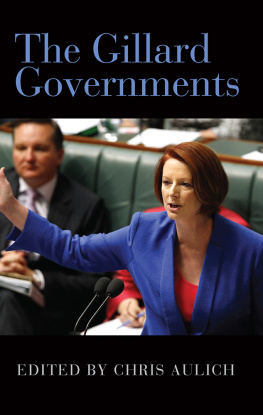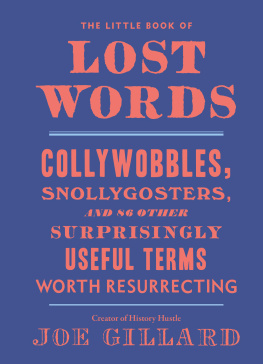THE AUSTRALIAN COMMONWEALTH ADMINISTRATION SERIES
Kouzmin, A, JR Nethercote & R Wettenhall (eds) (1984). Australian Commonwealth Administration 1983: Essays in review , School of Administrative Studies, Canberra College of Advanced Education in association with ACT Division, Royal Australian Institute of Public Administration, Canberra.
Nethercote, JR, A Kouzmin & R Wettenhall (eds) (1986). Australian Commonwealth Administration 1984: Essays in review , School of Administrative Studies, Canberra College of Advanced Education in association with ACT Division, Royal Australian Institute of Public Administration, Canberra.
Wettenhall, R & JR Nethercote (eds) (1988). Hawkes Second Government: Australian Commonwealth Administration 19841987 , School of Management, Canberra College of Advanced Education, and ACT Division, Royal Australian Institute of Public Administration, Canberra.
Halligan, J & R Wettenhall (eds) (1992). Hawkes Third Government: Australian Commonwealth Administration 19871990 , School of Management, Canberra College of Advanced Education, and ACT Division, Royal Australian Institute of Public Administration, Canberra.
Stewart, J (ed.) (1995). From Hawke to Keating: Australian Commonwealth Administration 19901993 , Centre for Research in Public Sector Management, University of Canberra, and Royal Institute of Public Administration Australia, Canberra.
Singleton, G (ed.) (1997). The Second Keating Government: Australian Commonwealth Administration 19931996 , Centre for Research in Public Sector Management, University of Canberra, and Royal Institute of Public Administration Australia, Canberra.
Singleton, G (ed.) (2000). The Howard Government: Australian Commonwealth Administration 19961998 , UNSW Press, Sydney.
Aulich, C & R Wettenhall (eds) (2005). Howards Second and Third Governments: Australian Commonwealth Administration 19982004 , UNSW Press, Sydney.
Aulich, C & R Wettenhall (eds) (2008). Howards Fourth Government: Australian Commonwealth Administration 20042007 , UNSW Press, Sydney.
Aulich, C & M Evans (eds) (2010). The Rudd Government: Australian Commonwealth Administration 20072010 , ANU e-Press, Canberra.
Contents
Chris Aulich
Robin Tennant-Wood
Gwynneth Singleton
Brenton Prosser and John Warhurst
Roger Wettenhall
Bill Burmester and John Halligan
Mary Walsh
Jenny Chesters
Anne Garnett and Phil Lewis
Linda Courtenay Botterill and Geoff Cockfield
Andrew Macintosh and Richard Denniss
Andrew Carr
Chris Aulich, Michelle Grattan, Brendan McCaffrie and Robin Tennant-Wood
David Marsh and Chris Lewis
Sally Young and Matthew Ricketson
Mark Evans and Brendan McCaffrie
Preface
Julia Gillard assumed the prime ministership on 24 June 2010, when she was elected leader of the Australian Labor Party. As the twenty-seventh prime minister, and Australias first female prime minister, Gillards election was cause for celebration in many quarters. With a boost in the polls, she immediately sought a mandate for her government and called an election for 21 August 2010. It was at this stage, however, that the Labor government began the electoral slide that culminated in the loss of office in September 2013. During those three years, Australia narrowly endorsed a Gillard minority government that was held together with support from a number of independents and crossbench members of parliament. The Gillard government ended its term almost exactly three years after it was installed, when Kevin Rudd won back the leadership of the Labor Party and with it, his second prime ministership.
In the intervening years we saw a prime minister under attack as never before: a combination of a hostile media, a relentless Opposition, fragile coalitions with the cross-benches, white-anting from within the Labor Party and an unprecedented assault on the Prime Minister herself, in large part due to her gender. It was, therefore, remarkable that the minority government was able to oversee an impressive legislative program, including a number of policies that sought to address long-term policy issues.
This volume traces the two Gillard governments from 2010 to 2013, viewing the period through the lenses of a group of experts in their fields of study. The volume is the eleventh in a series that has chronicled the events of all federal governments since 1983, each produced through the University of Canberra and its predecessor Canberra College of Advanced Education.
The book is divided into four sections: the first section includes two chapters that provide an overview of the period and then trace the drama and tension involved as Australia waited for the independents to decide which of the two main parties would hold a minority government.
The second section deals with the institutions of governmentparliament, the public sector and the public serviceand assesses the extent to which these were influenced by the political turmoil that surrounded them. The section also includes a chapter on the independents and the impact they had on those institutions and on major policies and legislation enacted by the two Gillard governments.
The third section deals with those policies that marked Julia Gillards three years as prime minister. The selection of key policy areas that characterise any period of government is always a difficult task, given that their saliency typically waxes and wanes throughout the period. We narrowed the choices to those matters that were kept in the public eye throughout the period and generated the key debates: asylum seekers and border protection, education, the economy, regional policy, climate change and foreign policy. This section also includes a chapter that assesses overall policy success, asking the question, what were the policy and program successes of the Gillard government? While these policy issues were examined in the context of the big, national picture, we have also included a study of a single electorate (EdenMonaro) during the lead up to the 2013 election. We were interested to see if national policies, or local issues, would dominate the campaign at electorate level, and act as a litmus test for the nationin this case, they did!
The final section of the book focuses on Prime Minister Julia Gillard, her leadership and her often tenuous relationship with the media.
Since the book was initiated in the third year of the Gillard period, the contributing authors have had to make frequent adjustments to their contributions and to their line of argument to capture the turbulence of the periodtwo prime ministers ousted by a party vote, a minority government, a series of scandals and disasters and a relentless Opposition. I am, therefore, grateful for the authors flexibility and resilience and also for their capacity to deliver a manuscript so soon after the election result. My sincere thanks go to them as well as to those who provided data to support their research, in particular to the two independent members of the parliament who twice made themselves available for interview, the four main candidates for EdenMonaro and the voters in that seat who participated in a series of online discussions throughout the campaign. It has been a genuine pleasure for me to work with colleagues in producing this eleventh book in the Commonwealth Administration Series.
Chris Aulich
ANZSOG Institute for Governance, University of Canberra
December 2013
List of Authors
Chris Aulich is Professor of Public Administration at the ANZSOG Institute for Governance, University of Canberra.












